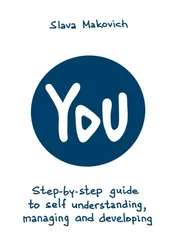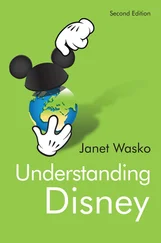Most of us reckon that individual people are mostly kind and decent - except when they succumb to being cruel or mean-spirited. Most of us know that other countries may be, politically, our allies, our enemies or neutral observers, but that these alliances may shift. An Australian does not see the world as the Englishman does, even if we come from similar cultures with close ties, a shared language and many shared values. In fact Australians make a virtue of being very rude about the English. Do we care? No, we laugh and are rude in return, though not so successfully. And then we return to finding out what Australia is really like.
I have written this section because it seems important to compare your way of looking at the world with ours if you are to reach an understanding of us.
The British and Foreigners
Here is a paradox. London is the most ethnically, nationally diverse city in the world. Like all countries with large immigrant populations we (and especially they) have had to cope with bitterness, fear, prejudice, violence, and injustice. Like some countries, we have struggled to remedy these bad attitudes with education, laws, money, community support, the media, and generations of people who spend years and years in helping each other. On the whole we have not done badly. (That is a very English sentence meaning 'We have not solved the problem completely but we have probably done better than anyone else at solving it.)
And yet - the English remain ignorant of other countries and even proud to be ignorant of them in one specific way: we do not learn or attempt to learn other languages. We expect other people to speak English on almost all possible occasions. This leads to a deafness to other cultures, even European cultures. Our popular newspapers regularly mock the French and the Germans for deeds committed seventy years ago and show remarkably little interest in what has happened since. We mock Americans, too, of course, but without exulting in our ignorance because they speak (more or less) the same language. We are not politically xenophobic, but culturally xenophobic - which is odd because our culture draws happily on rich traditions from all over the world.
Perhaps I am saying no more than that everyone needs someone else to laugh at. In Britain we are trained not to laugh at the weak and the helpless. We think it would be cruel to laugh at, say, children in Malawi struggling to get an education by sharing one book among twenty pupils. (You could make some good jokes about misunderstandings in the book, but we would not make them.) As peoples and countries become confident, richer, more eager to show their own virtues and power, they become the butt of our jokes. Our media was full of jokes about President Putin, although there were far, far more about President Bush. However we are not obsessed with foreigners. The people about whom there are most jokes in our media and everywhere else are our own politicians. The British love to mock the strange habits of rulers and people from other countries, but we enjoy even more mocking the stupidities and failures of our own rulers - and of ourselves.
British Culture, British Values
I once asked a group of adults from a small country who were insisting that they needed complete independence in order to preserve their culture, 'What exactly do you mean by your culture?'
A pause. 'Our national songs. Our national dances.'
'And this is what your country means to you? Songs and dances?'
'Our language...'
'Which no-one else understands.'
'Precisely. We want independence in order to be ourselves.'
This is a very isolationist view of one's national culture. This group felt as if they were a big family with a family's shared history, traditions, troubles, love and jokes. But they did not want anyone else coming into the family. It seems to me that they misunderstood how our closest relationships work. First, unless we accept outsiders into the family, it dies out. Secondly, the point of view of one generation towards a family: 'That party at New Year when we were all staying with John and...' 'Oh yes, and Jane was such a strange little girl - look at how she has turned out now!' differs strikingly from the point of view of a generation that cannot remember John, and for whom Jane has always been a grown-up.
In the same way, a culture is not - cannot be - static. As the present turns into the past, what we now see is affected by that recent past; but as that recent past recedes into a past which can be remembered only by older people, so what we see now is no longer now, but has become the recent past. Consequently any statement about our culture and values is liable to become false as we try to pin it down. And yet if we do not know and understand that past, we cannot be properly anchored in the present. Everything that happens will seem equally trivial, without significance. Cultures are like families - shared memories, shared experiences, mutual affections, mutual exasperation and, in extreme cases, a passionate willingness to fight for what we feel to be our world and our values. But cultures are bound to change, just as you are not exactly like your parents and they were not exactly like their parents.
Russians often express a more mystical view of culture. I keep hearing declarations such as: 'The essence of Russian culture is the specific Russian spirit. It is intuitive. It's a combination of elements created by the Russian spirit, Russian blood, Russian soil.'
My response to this (and I believe it is the response of an Englishwoman, not just my personal response) is that I would be unhappy as a Russian, because I do not like to be spiritually bullied into accepting something that someone else is proclaiming on my behalf. I want to say: 'It is not for you to tell me how I feel in my soul, just because you are the elder or the spokesman in our family!' Such declarations are typical of marching armies or of persecuted religious groups, but not, I think, of people who can remember that they have felt differently in the past, have changed their minds, enjoy new experiences, and expect to interpret and re-interpret their personal and national history as long as they go on living.
Many Russians will then say, 'Ah, but as Russians we believe in great leaders and wise father-figures. This is in our history.'
(I think: 'Along with tyrannical cruelty and violent revolution.') Then other Russians tell me that 'I don't believe in any of this leader nonsense'. It is useful to remind ourselves that any notion of a national culture does not obliterate personal temperament and individual opinions. What cultural attitudes and values do is to interact with those individual qualities, encouraging certain traits, sometimes suppressing others.
How the British Feel and Think
Using these explicit and implicit contrasts and complications, I will try to say something about British culture and values.
The first point is that I am tentative. The British distrust big grand statements. They believe that big grand statements are not about ordinary human beings, and therefore they are either not true or they lead to tyranny and disaster.
The second point is that I am more comfortable when thinking about English culture, because there is a difference between the values and attitudes of England and the much smaller countries, Scotland, Wales and Northern Ireland. These three countries have a sense of their Celtic heritage expressed in its myths and legends. Although Scottish Gaelic has almost died out and Irish Gaelic is learnt by a small minority in Northern Ireland, Welsh is still a flourishing, living Celtic language. Industrialization in the South Wales valleys added a distinctive culture in which poetry met politics and inspired education; there was (and is) nothing quite like it in England. In the sparsely occupied areas of the Scottish western highlands and islands one can find plenty of evidence of ancient Celtic culture, but it is too remote to have much influence on contemporary Scotland. More significant has been the succession of Scottish philosophers, sociologists, economists, natural scientists, politicians, explorers, writers and engineers who have played a far greater part in the history of the United Kingdom than one could expect from a population as small as that of Scotland. [Plenty of books about the cultures of these smaller peoples have been written. If you are interested, search them out.]
Читать дальше












